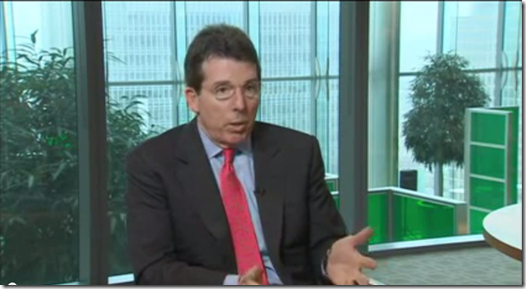If You Disagree, Should You Quit?
This week’s question of the week asked this morally tricky question: What should you do when you have to represent a viewpoint publicly that you disagree with personally?
Here’s what a couple of you had to say:
Patricia Smith of Smith Strategic Communications wrote: “As a spokesperson under a contract, whether employment or other, the duty is to represent the position of the organization. One should not offer one’s personal opinion.”
Deborah wrote: “As a matter of principle I think one shouldn’t be a spokesperson for an organization in which one doesn’t believe as it undercuts one’s credibility. The worst evolution of a PR professional is to be reduced to that of the stereotypical “paid hack” – someone who merely says what they are paid to say.”
This question comes down to whether your difference of opinion occurs regularly over big issues or rather infrequently over small ones. It’s been my experience that you’re eventually going to disagree with your bosses about something if you work for a corporation, nonprofit organization, government agency, or PR firm long enough.
If your differences of opinions are small and infrequent, it’s your job to voice the “party line.” That’s the easy one.
But what do you if you’re asked to speak on behalf of a position you strongly oppose? Patricia offered the following suggestions:
“…attempting to better inform or influence the organization’s position internally if one believes a change in position is in the best interest of the organization; asking for a qualified colleague or media-trained subject expert to take on the particular file; or, if warranted, rethinking one’s affiliation with the organization and considering a career or client change.”
I agree with both Patricia and Deborah on this one, and take a rather hard line – if you strongly disagree with a policy, you should resign the account or find another job.
A former colleague – 1990’s CNN host Bernard Kalb – embodied this principle well. He was the State Department spokesperson under President Reagan, but resigned in protest over what he viewed as a “disinformation program” being conducted by the U.S. against Libya’s Muammar Gaddafi. Bernie wore his decision to resign as a badge of honor, and deservedly so.
Here are your answers to the last two questions of the week:
Should You Ask Reporters For the Questions Before an Interview?
What Should You Do When a Reporter Knows Confidential Information?


I my opinion, there is a very large difference between disagreeing with a business policy position and holding personal beliefs that are contrary to the position. Business people disagree every day. I will actively represent my company’s positions, whether or not I agree that these decisions are the best for our business. That’s what I’m paid to do. Now, if I feel that the decision goes against my core belief system, I would seek to find another spokesperson. If I feel the decision is unethical or illegal, I would seriously contemplate leaving.
Hi John –
Thank you for making that distinction (I wish I had thought of that myself!). You’re exactly right that the type of disagreement is important — a business policy is one thing, a decision that opposes your core beliefs is quite another.
Thank you for giving me (and this blog’s readers) a new prism through which to view this issue.
Brad
I have represented groups whose beliefs I don’t share and have done it well. However, I draw the line at clients who represent something I disagree with ethically, morally or personally. I live in Las Vegas and turn away a fair number of opportunities because they seem to (or might, or absolutely do) exploit women, an issue on which I feel passionately.
There are also political issues with which I profoundly disagree, and on those I’d also take a pass – but if a group and I had an honest disagreement but on an issue in which I think men and women of honor can disagree (without being disagreeable), I have no problem.
For instance, my personal physician and I are on opposite sides of the political spectrum – but we have a long-time personal relationship and we consider one another friends. I had, for a long time, been a paid lobbyist (as a small part of bigger jobs) in the hospital field. He represents Osteopaths to the state legislature. For years, when he’s facing a lobbying challenge, he’s asked me for advice and I’ve given him what I hope is sage counsel. Though we may disagree on issues, his integrity and our friendship are far more important to me than petty, passing political issues.
So – I guess it comes down to intensity. If you honestly and deeply disagree, walk away. If it’s just a difference of opinion, but the client is (in your mind) ethical, go for it.
Ned Barnett
Barnett Marketing Communications
Las Vegas
Twitter: @nedbarnett
http://pr-marketing2point0.blogspot.com/